Tooth decay can be considered the most common disease today that can occur at any age. Although this is not a disease that is too dangerous for health, it can cause serious complications in the long term. Therefore, how to prevent tooth decay is something that many people are interested in. Let’s learn about measures to prevent tooth decay with BIK International Dental Clinic through the article below!
1. What is tooth decay?
Tooth decay is a condition in which the enamel surface of the tooth is permanently damaged, thereby creating gaps or large or small holes depending on the level of decay. Tooth decay is formed due to a combination of many different factors, including bacteria in the oral cavity, unhealthy eating habits, use of sugary drinks and poor oral hygiene.
Although tooth decay is a common disease, if tooth decay is not treated promptly, the damage will spread and affect deeper parts of the tooth. This can lead to severe pain, infection and tooth loss. Regular dental check-ups as well as maintaining the habit of brushing and flossing are the best ways to protect your teeth and prevent tooth decay.
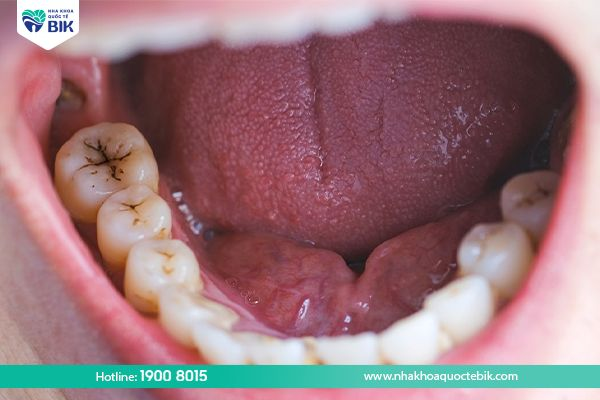
2. Causes of tooth decay
There are many factors that cause tooth decay, including:
2.1. Due to foods that cause tooth decay
Tooth decay can be caused by the patient using a lot of foods that cause tooth decay and can stick to the teeth for a long time. Foods such as ice cream, milk, honey, sugar, soda, dried fruit, hard candy and mints, cakes, cookies, dry cereals and potato chips are more likely to cause tooth decay than foods that are easily washed away by saliva in the mouth.
2.2. Frequent snacking
If customers have a habit of snacking frequently or sipping sugary drinks. This habit will create a favorable environment for harmful bacteria to grow, creating acids that attack tooth enamel and erode teeth. Using soda or acidic drinks regularly during the day will create a continuous amount of acid that coats the teeth and erodes tooth enamel.

2.3. Lack of regular oral care habits
A regular and proper oral hygiene habit will be the best long-term measure to prevent tooth decay. If you do not clean your teeth soon after eating, plaque will form quickly and the early stages of tooth decay can come from this cause.
2.4. Tooth location
Tooth decay will occur in the teeth on the inside (molars and premolars). Because these teeth are naturally born with many grooves, holes, crevices and many roots where food particles can easily get stuck. Therefore, they are more difficult to keep clean than the soft and easily visible front teeth.
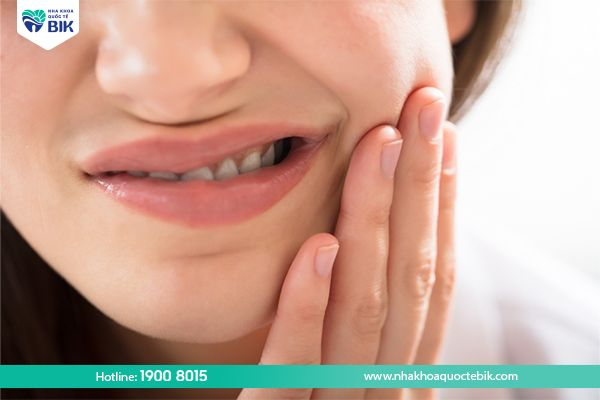
2.5. Due to age
Tooth decay is common in young children, adolescents and even the elderly are at high risk of this disease. Over time, teeth can wear down and gums can recede, putting teeth at risk of cavities. In particular, the elderly may be using medications that reduce the amount of saliva in the oral cavity, thereby increasing the risk of tooth decay.
2.6. Infants breastfeed before bed
Babies are often fed breast milk, formula, fruit juice or other sugary liquids before bed. These drinks stay on the teeth while the child sleeps, creating an environment for harmful bacteria to cause tooth decay. This is also known as baby bottle tooth decay. The same condition can occur when a child is just learning to drink these drinks from a small cup.
2.7. Fluoride Deficiency
Fluoride is a naturally occurring mineral that helps prevent tooth decay and has the ability to reverse the earliest stages of tooth damage. Because of its beneficial effects on teeth, fluoride is often added to many public water supplies, and is a common ingredient in toothpaste and mouthwash. However, bottled water does not usually contain fluoride.
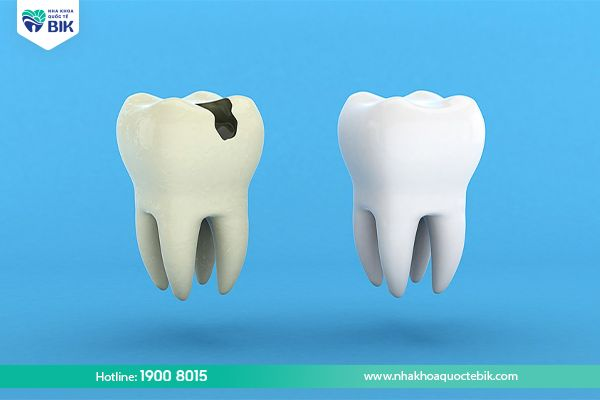
2.8. Eating disorders
In addition to anorexia, cases of eating without moderation can also cause tooth decay and tooth erosion. Stomach acid from repeated vomiting washes away teeth and begins to dissolve tooth enamel. Eating disorders also greatly affect the secretion of saliva in the oral cavity.
3. Complications of tooth decay
Although tooth decay is a common condition, it does not mean that this is not a disease to worry about. Tooth decay in children is also a common condition. However, tooth decay can cause dangerous complications in the long term, even in children who have not yet grown permanent teeth.
Common complications of tooth decay include:
– Painful episodes
– Swelling and pus around the gums
– Tooth abscess
– Causes long-term damage or even broken teeth
– Difficulty in daily chewing
– Changes in tooth position after tooth loss
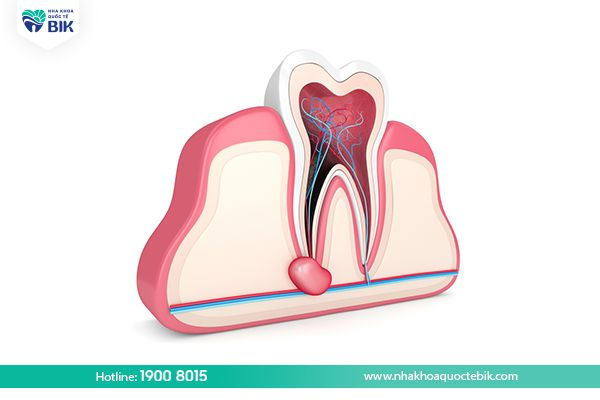
When tooth decay has progressed seriously, the following complications may occur:
– Toothache causes discomfort, affecting daily activities
– Because teeth cannot perform chewing function well, leading to loss of appetite, fatigue, and physical weakness
– Tooth loss can affect aesthetics, causing loss of confidence
– In some serious cases First, a tooth abscess can lead to serious infection or even be life-threatening.
4. How to prevent tooth decay
Because of the dangerous complications mentioned above, customers need to take measures to prevent tooth decay such as:
4.1. Basic dental care
According to the International Dental Health Association, nearly 42% of adults only use a toothbrush to care for their teeth. To protect their teeth in the long term, customers should perform basic dental care steps in the morning and evening before going to bed.
– Practice brushing your teeth at least twice a day. When brushing your teeth, you should brush all surfaces of your teeth, including the deepest gaps.
– Use dental floss to remove any remaining food particles.
– Use mouthwash because of its excellent antibacterial properties. It will help eliminate any remaining bacteria in the oral cavity. You should rinse your mouth with specialized products instead of using filtered water.
4.2. Reasonable diet
To promote saliva, customers should consume foods rich in fiber such as fruits, nuts and vegetables. Especially foods such as apples, bananas, peas, whole grains, herring, salmon, tuna, sardines because they provide the body with a lot of vitamins, which can make teeth strong.
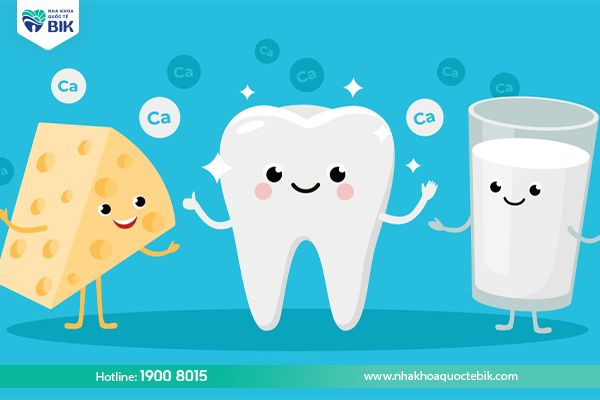
4.3. Rinse your mouth with coconut oil
Rinsing your mouth with coconut oil is also one of the effective methods to prevent tooth decay. Coconut oil will push bacteria out of your teeth and heal them naturally. To do this, just hold a spoonful of coconut oil in your mouth for 20 minutes until your saliva and coconut oil turn milky white, note that you should not swallow. Do this every day to effectively prevent tooth decay.
4.4. Change your eating habits
According to research in the British Medical Journal, a reasonable diet can protect and restore decayed teeth. Customers should add calcium to their daily meals because this is the main ingredient in building bones and teeth. In addition, they should also add dairy products such as fresh milk, yogurt, cheese, etc. Limit the use of foods such as carbonated soft drinks, sweet cakes and candies. Instead, they can be supplemented with fruit juices and smoothies, etc.
4.5. Use sugar-free chewing gum
Most sugar-free chewing gum sold on the market today contains xylitol – a natural sweetener. Unlike other foods, xylitol does not cause or develop harmful bacteria in the oral cavity. Instead, when chewing gum, the oral cavity secretes a lot of saliva, helping to wash away food naturally.
4.6. Use the right toothbrush
The importance of choosing the right toothbrush is often overlooked by many customers. Choose a small or medium-sized toothbrush and make sure its bristles can reach every crevice of the molars, where food can easily get stuck. Do not use toothbrush covers as they can harbor microorganisms and bacteria. Customers should rinse their toothbrushes with water after each use and store them in a cool, dry place.
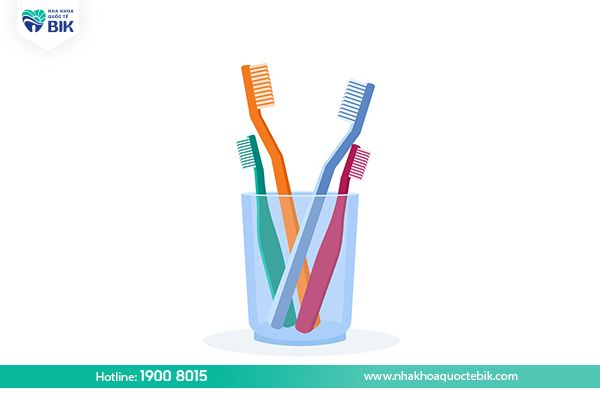
Do not leave your toothbrush in the toilet as bacteria from the toilet can attack it. In addition, you should also change your toothbrush regularly as the bristles will wear out over time, significantly reducing its cleaning ability.
4.7. Regular dental check-ups
Even if you have a habit of regular and clean oral hygiene at home, you should still visit a dental facility for regular check-ups. The dentist will clean plaque and tartar, so you should visit the dentist at least 1-2 times a year.
4.8. Make your own toothpaste
This is probably a method of preventing tooth decay that is rarely used because the ingredients are not readily available. However, if you still want to make your own toothpaste at home safely and effectively, customers can apply the following formula:
– 1 tablespoon of sea salt
– 1 tablespoon of stevia
– 4 tablespoons of calcium powder
– 2 tablespoons of baking soda
– ¼ cup of coconut oil
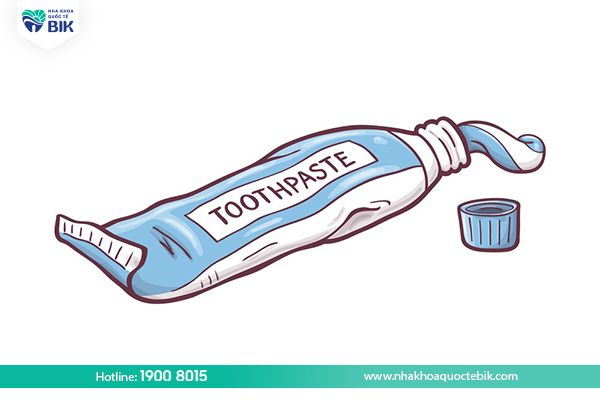
Note that 1 tablespoon corresponds to 15ml. Then, mix all the ingredients together and use as regular toothpaste.
Thus, the way to prevent tooth decay can be done by simple measures such as clean oral care, having a reasonable diet, limiting the use of sugary foods, using the right toothbrush, etc. The above ways to prevent tooth decay can all be applied at home. However, customers should still have regular dental check-ups 2-3 times a year to remove tartar and detect dental diseases early.


















